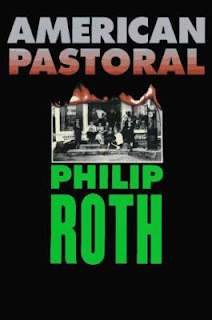Books to Get You Thinking
On March 19, one of America’s greatest contemporary fiction writers, Philip Roth, turned eighty. To honor him, a birthday celebration attended by friends, scholars and luminaries from the literary world was arranged in Roth’s hometown of Newark, NJ. The celebrations started with the unveiling of the exhibition "Philip Roth: An Exhibit of Photos from a Lifetime" at the Newark Public Library A memorable part of the evening's celebrations was the author reading from his book Sabbath’s Theater. His writing has spanned several decades and his earlier announcement of retirement from writing was met with disappointment by avid readers who have been following his work since the publication of his first book, Goodbye Columbus, in 1959. Roth, one of America’s most prolific writers, has been the recipient of multiple literary awards including three PEN / Faulkner Awards, two National Book Awards, and the 1998 Pulitzer Prize in Fiction. In 2011 he was presented with the prestigious Man Booker International Award. At the Awards ceremony Rick Gekoski, the chair of the judges, in summing up Roth’s contribution to the literary world said “for 50 years, Roth's books have stimulated, provoked and amused an enormous, and still expanding, audience". (Guardian.co.uk Wednesday 18 May 2011).
American Pastoral
The novel, set against the backdrop of the Post World War II Jewish community of Newark, New Jersey, deals with how the turmoil and social unrest of America in the sixties shatters the hitherto idyllic life of its pivotal character, Seymour Levov. Born to Jewish American parents, Seymour grows up well-integrated into American life, dreaming of success and prosperity and enjoying a rich life in suburban Newark with his wife and daughter. The sixties bring with them the War in Vietnam and his daughter’s involvement in the protest movement that escalates into a bombing that killed a bystander and sent her into hiding, only to return years later as a homeless and lost soul. Seymour’s world is shattered, and much of the novel creates a brilliant juxtaposition of Seymour’s life in the era before and after that fatal bombing. On a more fundamental level, the novel explores how fragile and short-lived happiness and success can be. The novel won the 1998 Pulitzer Prize for fiction.
The Plot Against America
Published in 2004, the novel won the James Fenimore Cooper Prize for Best Historical Fiction in 2005, awarded by the Society of American Historians. The novel itself is a compelling and brilliant “what if” scenario that spins a fascinating alternative history of an America where Charles Lindbergh wins the Presidency in 1940 and ushers in an era where fascist and anti –Semitic ideologies take over the country . The book is set in the quiet Jewish American section of Weequahic in Newark, New Jersey. Written in the voice of young Philip Roth, the book follows the lives of the Roth family and is rich in details about how racial tensions invade and transform their once happy and carefree lives. Against the backdrop of a political landscape, Roth dispels the frequently encountered perception of “it can’t happen here” as a myth that may not stand the test of time.
The Human Stain
Part of a trilogy penned by Roth, The Human Stain continues the author’s exploration of human nature following the lives of its fascinating characters against the backdrop of the American political and social landscape of the 1990’s. Narrated in first person by Nathan Zuckerman, the book revolves around Coleman Silk, a professor of classics and Dean of Faculty in a fictional college located in rural New England. A chance remark in the classroom leads to accusations of racism and Silk is forced to resign. Stripped of everything he had worked for and the subsequent death of his wife in the midst of the controversies, Silk’s life is filled with bitterness, anger and sadness. As the drama unfolds, Roth skillfully explores the different underlying themes of the novel: racism in its many forms, truth and falsehood and how existing social mores can transgress individual lives.
-Nita Mathur



Comments
Post a Comment